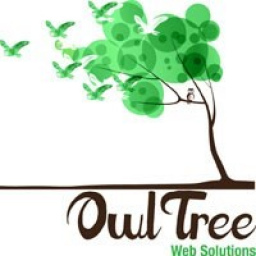Undertaking Search Engine Optimisation (SEO) is important to ensure your business’s website is ranking as high as it can on search engines for given search terms.
However, SEO can be very complex and require specialist skills and knowledge. It’s even harder if your business operates in a crowded marketplace. Indeed, some businesses will spend thousands of pounds every month on expert help.
If you want to rank highly because of the valuable source of business leads that it generates, we would always recommend taking expert advice, if you can.
That said, if your business is small you may not have the funds to pay for an external SEO provider. So, in this month’s article, we’re going to discuss on page SEO that you can action yourself in order to give your business the best chance of ranking well on search engines.
On Page SEO
For the purpose of this quick guide, on page SEO can be split into two areas:
- Technology: Can search engines access, evaluate, and understand your website?
- Content: Does Google know what you offer, where you offer it and to whom?
If you can optimise these areas then it will give your business a solid foundation to work from.
Technology
A website’s technology is about ensuring that search engines can crawl, index and understand all your content and in the right way.
Depending on how tech savy you are, you should be able to check that you have the following basics in place:
- Properly structured page addresses (URLs) that are easily understood and meaningful.
- Have an XML sitemap that the search engine can check and keep it up to date.
- Ideally you shouldn’t have “Not Found” pages but if this should happen check that the result in is “404” code page and not 200 or 302 codes.
- Use HTTPS rather than HTTP.
- The website allows itself to be indexed and followed.
- The website loads quickly. Google provides a handy speed check tool that also offers some tips on increasing speed: https://developers.google.com/speed/pagespeed/insights/
The platform your website is built on will determine how you can check some of the above but a quick Google search will give you the answer for your particular system.
Content
When a search engine looks at your website’s content it is, in effect, looking to interpret what your content is about. Put simply, you need to help by making it easy for the search engine. Just by way of definition, content includes text, images, videos or audio that is meant to be crawled and indexed by search engines and then consumed by your customers.
SEO friendly content is now more important than ever so when you’re writing it be sure to include the search terms that people use the most to find businesses like yours. It also means having properly structured content, optimised keywords in headlines and titles and sufficient topical focus on each page.
Image file sizes should be optimised for the web. There is no point having large resolution images that never get seen at that resolution; they will only slow the website down. Images should also have description (alt) tags completed so that they too can be indexed by search engines as well as being used by automated screen readers to describe the image.
At a basic level, whenever someone searches for a “service and location” for example, “Kitchen Showrooms Bolton”, the search engine wants to show a website that offers that service in that location. You can satisfy this by adding pages to your website that talk about specific services and locations. To reinforce this, the search engine looks for information elsewhere on your site that confirms you are a local business and that you work in the sector.
In the above kitchen showroom example there will be pages that describe services and locations. These could be further reinforced by blog posts or embedded video covering what you do. In addition, to reinforce that you are local, create content relevant to your locality in blog posts.
To summarise, create pages for each service and location that you work in, followed by creating additional informational content about the product or services you offer and the locations you offer them.
User Experience
Once a visitor is on your website the SEO has served its purpose. Now the user’s own experience will determine when or if they convert to customers. The subject of User Experience (UX) is a topic in its own right and one that will be best served by its own article.
OwlTree Web Solutions
 Datacentreplus.co.uk
Datacentreplus.co.uk









